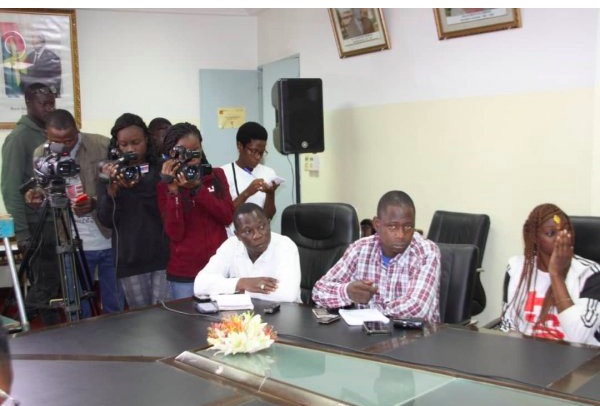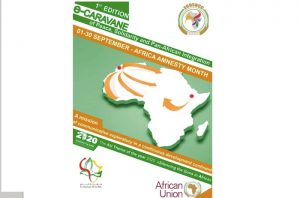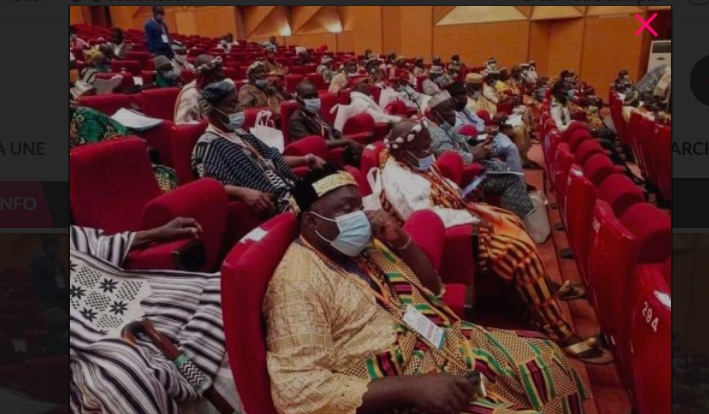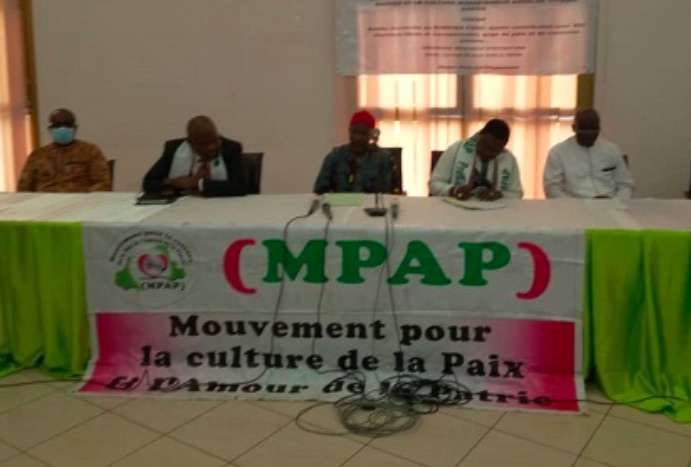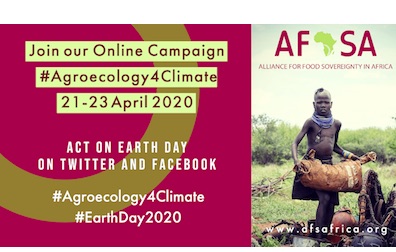. . SUSTAINABLE DEVELOPMENT . .
A presentation by Omar Aziki published by The Transnational Institute (reprinted according to a Creative Commons Licence:Attribution-Noncommercial-No Derivative Works 3.0 licence.)
Today, it appears that the Coronavirus Pandemic will inadvertently cause humanitarian tragedies of immense proportions. Its health, social, economic and psychological repercussions vary depending on social status. The lower classes will be the first to suffer from the lack of public healthcare and medication, as well as from the economic recession’s impact on employment and the cost of living.
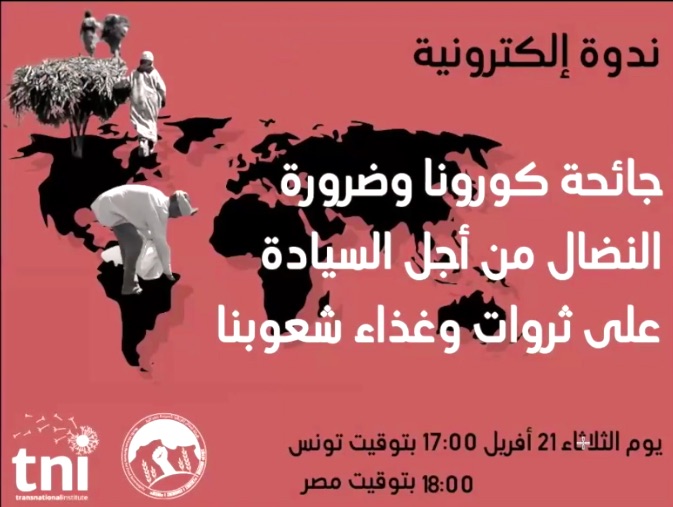
Watch the video (In Arabic)
The spread of Covid-19 has exposed a relationship between the health crisis and other crises brought about by the capitalist system. The latter includes financial crises (the crash of stock markets worldwide) as well as economic (the decline of production and economic recession), environmental (climate change and loss of biodiversity) and political ones (the rise of totalitarian governments and an institutional strain of international capitalism). The virus has also found fodder in the immigration crisis (spread across all continents) and the food crisis. There is a correlation between the vulnerability of the human immune system and the recurrence of epidemics. The manner by which agriculture has transformed, from an activity that produces ecological and healthy food, to a profit-making industry built on the poisoning of our bodies and environment.
Capitalism has destroyed subsistence agriculture, a mode of production in harmony with its environment, and caused massive deforestation and over-exploitation of marine resources. Meanwhile, big corporations have seized the genetic heritage developed by peasants through the centuries. They have appropriated a biodiversity constructed through the natural selection process of varieties of seeds, plants, and livestock. As such, GMOs were disseminated based on the logic of excessive production. These organisms form the basis of destructive monoculture, using production techniques that heavily depend on chemical fertilizers, toxic pesticides, industrial feed, added hormones and antibiotics. This heinous process of production affects both farm and marine animals. Capitalist conglomerates have dominated plant and livestock production chains, as well as distribution and consumption networks. The globalization of transportation and communication, as well as advertising (which is one of capitalism’s most effective weapons) made the penetration of an industrial consumer-oriented food regime possible.
That’s how famine developed; from which more than 820 million people suffer around the world today. And we mustn’t forget that the numbers do not reflect the extent of malnutrition in the countries of the South (especially amongst women and children) and its repercussions on the outbreak of diseases. The food dependency of most of the countries of the South was intensified by the agricultural policies of the big capitalists who produced to export what the world markets required according to the international division of labour. The import of essential commodities became dependent on speculative food markets. This is the reality experienced by the countries of North Africa and the Middle East, which have become one of the largest global importers of foodstuffs. These countries live at the mercy of food markets, a reality which has subjected them to regular bread riots as food prices have risen during the last 40 years. The most recent are the protests resulting from the food crisis in the context of the 2007-2008 international financial recession. This food crisis can be directly linked to the subsequent popular uprisings we witnessed in most countries in the region, from the end of 2010 until the beginning of 2020 when confinement measures obliged protesters to desert the streets.
(Article continued on right side of page)
What is the relation between movements for food sovereignty and the global movement for a culture of peace?
How can we work together to overcome this medical and economic crisis?
(article continued from left side of page)
Today, as our region faces the Covid-19 outbreak, we see direct producers risking their lives as they resume their activities. Meanwhile, agricultural capitalists continue to show their disregard for the workers’ lives. They deny their right to preventive health measures both in transportation and inside production units while benefiting from state support, tax concessions, loan facilities and other benefits. On the other hand, small farmers, fishers, herders and agricultural labourers suffer from the lack or insufficiency of social subsidies, public healthcare, on top of a rise of prices for essential commodities, falling incomes and outright job loss.
The North African Network for Food Sovereignty, to which I belong, has put forward a series of demands and urgent measures to be implemented through the entire health emergency period:
a. For small farmers, fishers, herders, forest workers and the unemployed in rural areas:
b. The payment of monthly compensation, no less than the minimum wage in rural areas, for the entire health emergency period.
c. The amount of compensation should be proportionate to the number of dependents in the worker’s household.
d. The universalization of social security and healthcare coverage and access to regular pensions.
e. The cancellation of debt owed by small farmers.
f. Providing all types of support to subsistence farming activities (in plains, mountains, forests and oases), subsistence stockbreeding, and coastal subsistence. As well as encouraging the consumption of their products through the creation of direct markets and fighting illegal and monopoly speculation.
For employees who lost their jobs in the fishing and agriculture sectors:
a. The payment of full wages.
b. The payment of employees’ social security contributions.
c. The cancellation of consumer credit and micro-credits.
For all direct producers in agriculture and fishing sectors:
a. The creation of a fund to regulate the prices of essential commodities (major food crops, vegetable oils, sugar, butane gas…)
For households, the state must cover the cost of:
a. The means of protection against Covid-19.
b. Medication and all medical services.
c. Water, electricity, communication networks and rent.
d. Children’s education.
Indeed, the deterioration of living and healthcare conditions will once again fuel popular uprisings which are already finding new ways to manifest themselves during the lockdown. We in the North African Network for Food sovereignty will work to engage with and mobilise small farmers, fishers, herders, forest and agricultural workers in this upcoming struggle.
We will continue, from within the Network, our activism and campaigns for:
* Popular education.
* Strengthening solidarity and organizational links.
* Speaking up against repression and the stifling of freedom of expression
* Exposing the prevailing model of production and consumption.
* The alternative of Food Sovereignty.
